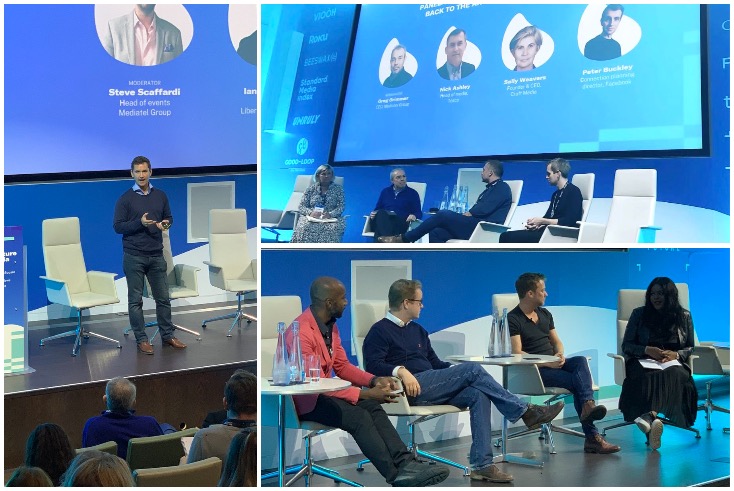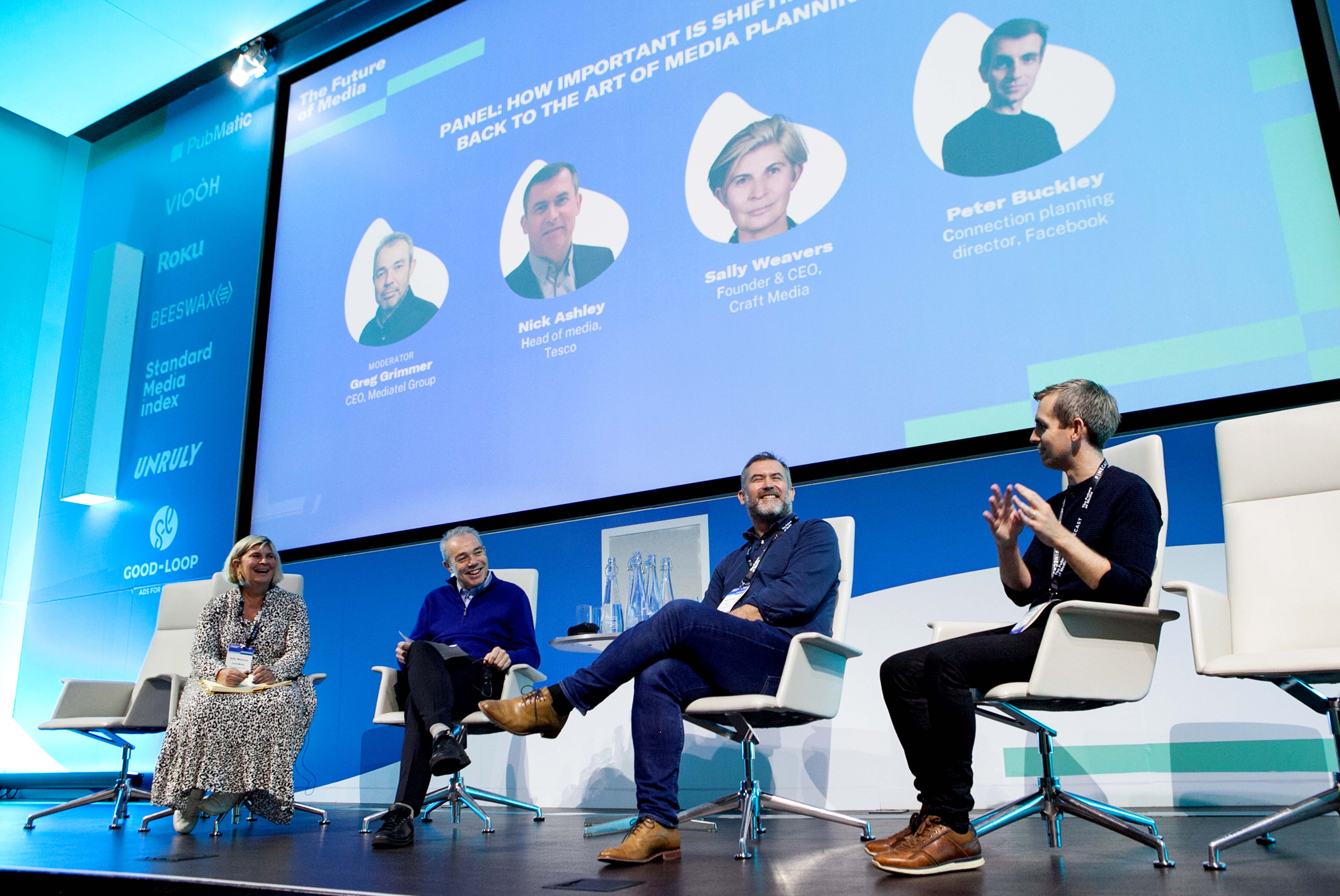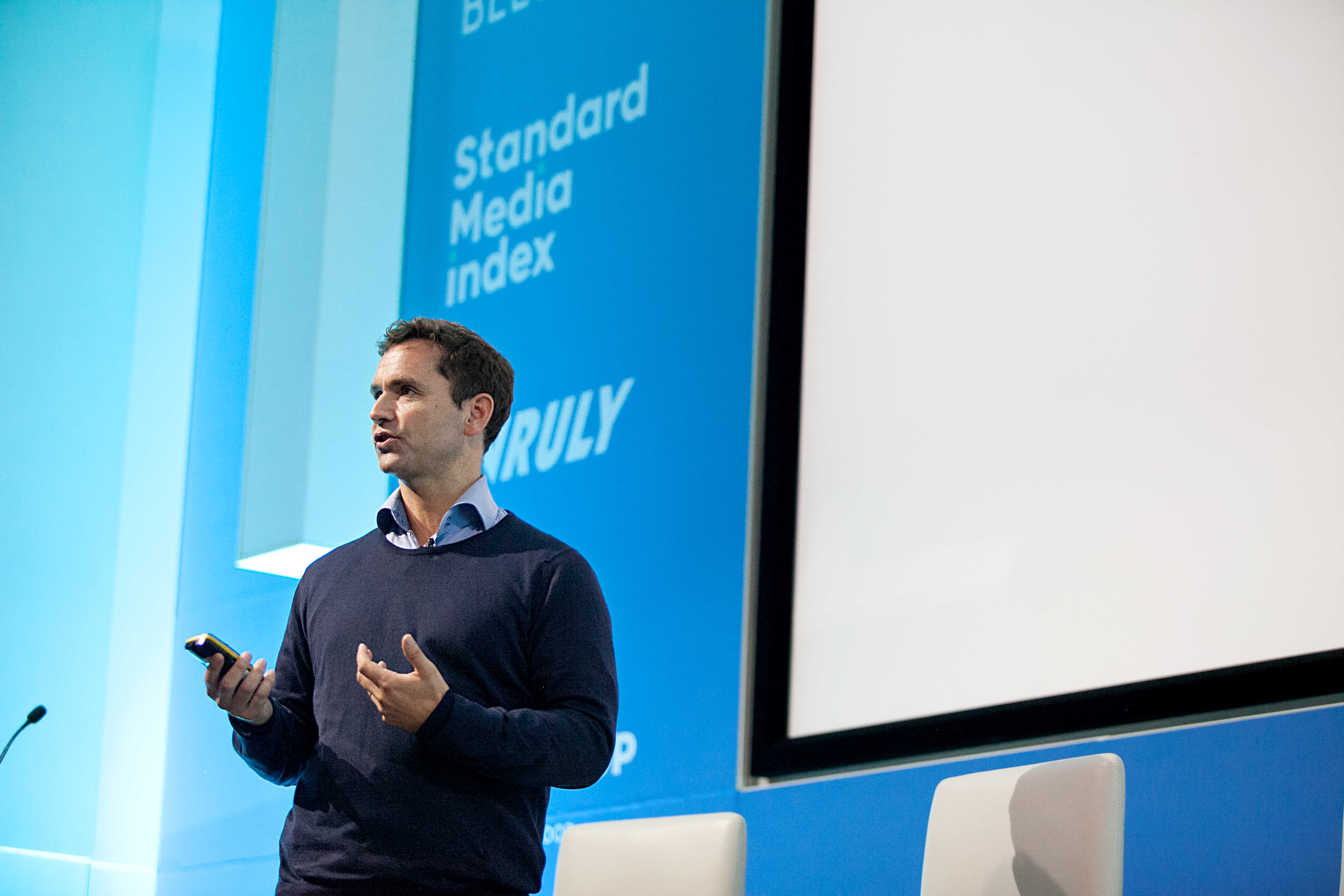Week in Media: are you selling a service or a product?

The Future of Media conference showed how strong our industry’s talent is, but is it brave enough to put all of its good ideas into practice, asks the editor
As we enter the season of goodwill (as far as the shops are concerned anyhow), let me appeal to your charitable sides by saying this – I made a mistake.
I had planned to write a column summarising the key takeaways from last week’s Future of Media conference in London, a two-day packed schedule that featured insights from the UK media industry’s most senior marketers, agency chiefs and consultants.
Instead, I got caught up in an alternative vision for the future of media that had been presented shortly after our conference concluded on Thursday evening: a dystopia of dullness in which Mark Zuckerberg and chums build a hyper-realistic virtual world so they can, er, play cards and wear “sweatpants” all day.
I should have written about what happened in “the real world” at Future of Media, because there were so many important insights about the real and difficult challenges that our industry faces, as well as a groundswell of optimism for what can be achieved.
Mediatel News will report the key sessions over the coming days and if you missed the event, all the content will be available to view online on the 10th and 11th November.
Register here for access to that and please feel free to share with any colleagues (or friends and family – it is Christmas soon, after all). It will be available to view on-demand after the online broadcast.
So much talent, but are we getting the best from it?
It turns out that Facebook in particular did have interesting things to say about the Future of Media, thus adding yet more weight to my charge that this company only continues to thrive despite Zuckerberg, not because of Zuckerberg.
On the first day, our morning session on media strategy featured a fascinating panel about whether media planners need to refocus on “art” of strategy despite the array of tech solutions that are now available.
Both Craft Media co-founder Sally Weavers and Tesco head of media Nick Ashley agreed that a key part of the “art” of good strategy is being able to challenge the brief. It means that agencies need the bravery and confidence to push back on clients, but how many are doing this in practice?

Pete Buckley, Facebook’s connection planning director (above) who previously spent many years agency-side, said the social media behemoth’s “open culture” of sharing information internally is in a “different league” to anything he had experienced at agencies.
Compare this to a recent warning about a crisis in agency strategy by Havas Media’s chief strategy officer, Eva Grimmett. She said there needs to be “greater fluidity within strategy teams and increasing use of freelance and outsourced talent to collaborate on solving clients’ problems.”
Nick Emery, the former Mindshare CEO who now runs the nascent You & Mr Jones Media, told me during an interview on stage during Day 2 that he is essentially creating a “global talent agency”. From Emery’s vantage point, he sees the future of media as being able to connect advertisers with best-in-class talent, even if they’re not on your agency’s payroll.
Essentially, this is about client service and there were many points of view throughout the conference on how advertisers can get a better media service from media owners and media agencies.
Media is increasingly about making things
However, another Facebook exec, Nick Baughan, made an important point on Day 2 during a panel abut whether the agency-client relationship needs a “reset”, featuring Asahi’s global head of Media Ross Sergeant, Bicycle co-founder Lauren Ogundeko and The Barber Shop founder Dino Myers-Lamptey.
Baughan, another MEC alumnus, said: “the key thing for agencies going forward is they need to develop product.”
I don’t think we talk enough about how significant “product” is in our industry, perhaps because we have an inherent bias towards an idea that media should be all about monetising great content and that anything else is somehow ‘impure’.
Look, for example, at the flurry of Christmas ads we’ve seen from the big retailers this week. The marketing teams at Boots and M&S are clearly placing a greater emphasis on “shoppable” advertising, whether that’s using QR codes in video-on-demand spots or using ecommerce products via Instagram and TikTok.
John Lewis, meanwhile, appears to be letting the strength of its creative do all the heavy-lifting as usual.
Over the last two years, we’ve seen media owners working hard to develop self-serve products for advertisers, whether it’s the broadcasters buying platforms for VOD, the myriad ecommerce solutions announced by social media companies, or podcast publishers launching ad targeting options as audiences continue to grow strongly.
Even TikTok, the breakout star of very recent times, is seen by many as this genius entertainment platform where yoofs can freely express themselves with lip-syncing vids and comedy skits.
Well, perhaps… or is the real genius of TikTok the algorithm that somehow manages to serve non-obviously relevant content recommendations to users. I had no idea I was interested in woodworking, but TikTok has awakened some primitive urge to cut some bevels and mitres.
But to Baughan’s point, are we seeing the same level of product innovation within agencies, whether for use by clients or for internal teams?
At the risk of provoking a flood of emails saying “we’ve done this”, I’d agree that media owners and advertisers would benefit from seeing more product-led differentiation between agencies in a world where talent seems to be increasingly scarce and media becomes more complex.
And yet, whether the future of media is about selling services or products can become a moot point if advertisers do not value properly media as an investment in growth.
Appreciate quality, depreciate cost fallacies
The Day 2 panel on this subject, featuring Twitter’s MD Dara Nasr, Sky’s head of media Dentsu X CEO Beth Freedman and DCM CEO Karen Stacey, is essential viewing, too.
Stacey made an important observation about how media companies are “trying to do too much” given all the marketing opportunities that are on offer nowadays. Sometimes, she explained, it’s as valuable to tell clients what not to do.
While that panel spoke about how important it is for marketers to have the ear of the CEO and the CFO when it comes to selling the importance of paying more for better media products and services, it may be that the language of how media is talked about needs to change in future.

Instead of treating it as a cost on the balance sheet, perhaps media should be regarded as a capital expenditure investment, the media analyst Ian Whittaker (above) said during his keynote address on Day 1.
If media investment is so fundamental to sales and growth, why shouldn’t it be treated the same as buildings or other assets that depreciate over time?
Whether the future of media is about improving services or developing products, consumers and advertisers are dependent on quality media for our Information Age, whether that’s quality content or quality ways to monetise it.
If this industry focuses on quality above all else, as it showed it can during a hugely absorbing two-day conference, then the future of media looks very strong indeed.




